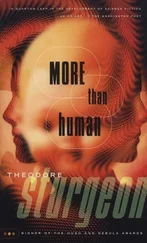Rodney angles his body to the window so the kid will stop talking.
The train is due to arrive at two a.m. and as far as Rodney knows it’s on time. This must be Hastings, he thinks, the train slowing into town. Even though his mother grew up here and had been living at the Medicaid home for years, Rodney has never been to Hastings before. Neither had his father, who died years ago. There isn’t much for Rodney to see out the window. Some houses and rectangular brick buildings, long lonely streets with cars parked here and there, faintly lit plastic signs marking off businesses that are closed for the night. It’s mid-summer and even in the bluish darkness of early morning things look yellow and dry.
Rodney waits on a bench after getting off the train because he doesn’t know where to go. A few others deboard with him, but they have people waiting for them, folks they blearily embrace, somnambulists who help load luggage into the back of a car and then drive off. By the time the train chugs off toward its next stop the station is quiet again, save for the shuffling of Rodney’s feet and the young man he sat by earlier talking on a cell phone.
When the young man closes his phone and slides it into his pocket, Rodney approaches him, slowly, because he doesn’t want to risk scaring the kid. “Do you know how to find this place?” He hands the young man a slip of paper with the nursing home’s address on it. It was his girl who told him about his mother, because her place was Rodney’s last known address. There was a message from his girl in the office at the Kellogg one day, after Rodney went back to the rooming house, telling about his mother’s passing.
“That’s easy to find,” the young man says and he explains how to get there. “If you want a ride, you can have one,” he adds. “My dad’s coming for me.”
“I don’t need a ride.”
“Let us take you,” the young man insists. But Rodney shakes his head no and walks off.
He likes to stroll along city streets when they’re empty. And he’s only thirty-seven, his legs are strong and elastic, more than capable of moving from place to place on their own power.
A few nurses are chatting at a kiosk when Rodney walks in. One of them says she can take him to where his mother’s body is being held. The nursing home looked like a warehouse to Rodney when he approached it, but there was a sign in front that told him it was the right place.
The nurse talks as she shepherds Rodney down long white hallways. “Your mom had good friends here,” she says. She’s a big woman, the nurse, in her early thirties. There’s a door every eight feet or so, most of them closed, pumping sounds working inside, but occasionally a door is left open, the room beyond it silent and empty, the equipment unplugged.
“Her body was moved to our chapel. The old-timers get nervous for a few days after one of them passes. You understand.”
She continues to gabber. Rodney smiles if she tries to reassure him or nods thoughtfully if she’s describing something that sounds technical. Rodney doesn’t pay attention to her. He thinks about his mother. It’s been five years since he saw her last. Even before then, when he was away in the army, Rodney didn’t see her all that often, and that was fine by him. He prefers a quiet, lonesome kind of life. It’s no great stretch to say that. The bustle and prying of family makes him nervous. His mother’s parents didn’t like coming to Omaha when they were alive, them the only other people he knew from Hastings, and they insisted on meeting at a restaurant outside the city when they visited, near the suburban hotel they stayed in. They were all embarrassed, having to do it like that. Being around family is a big embarrassment for everyone. Rodney understands this.
When he and the night nurse get to the chapel, Rodney is surprised to find that most of the chairs are filled with residents, ten to fifteen of them. The old folks face the casket, but they turn to look at Rodney as he nears the room, waiting to see if he’ll enter or walk past.
“Who are they?” Rodney asks.
“We hold a vigil when one of them dies,” the nurse explains. She shows Rodney to an empty seat and settles in next to him. “It helps. These people will miss your mother. Some of her friends.” Then she whispers, “A few of them just like to come and sit. Busybodies. You understand.”
The chapel is bright, spotlessly clean, and beside the chairs there’s a bier draped with blankets on which the casket rests. A Chicana nurse sits beside the door and wears a pink smock and a white cap that tilts atop her hair. At the front, one of the old ladies cries, a large woman in a loose dress who leans against the casket, her chair pulled close. It’s a strange thing to Rodney, this woman’s weeping, because none of the other residents cry with her. He wants her to stop carrying on and gets the feeling that the rest of the people in the room do too.
“I’ll leave you to your thoughts,” the nurse who brought him says. “If you need anything, I’ll be at the kiosk. The funeral is tomorrow morning. That’s today, I guess. In five hours or so, when the pastor gets here. That gives you some time with the coffin, as you’ll want to do.” And then, “I hope you knew a pastor was coming. It was her wish to receive final rites.”
“Of course,” Rodney says.
“The lid is closed, but we can open it. I’ll do that,” the nurse says, standing up, “so you can see her.”
She starts toward the casket but Rodney stops her. She halts and looks at the blotch on her arm where he touched her. “You don’t want me to?”
“No,” Rodney says.
“You don’t want to see her one last time?”
They stare at each other for a moment, Rodney and the nurse from the kiosk, both of them embarrassed as the old folks murmur about what’s happening.
“I understand,” the nurse says, although it’s clear she doesn’t. She leaves the room without saying another word.
No one speaks in the chapel. They slump in the chairs, stare at the crucifix on the wall or down at their slippers, or play with something in the pockets of their robes, or readjust a walking stick if one lies across their lap. Most of the residents are in pajamas and Rodney wonders if they’ve been here all night. It’s nearly four a.m., he notices, looking at a clock on the wall.
He closes his eyes after a while but catches himself before he nods off. He doesn’t want to fall asleep in this room, with these people, and for a while his nerves keep him awake. The residents look at Rodney then nod to each other. They know who he is. One of the old men along the wall rests his chin on his hands, clasped over the end of his cane, and stares hard at Rodney, at the sun-baked surface of Rodney’s face, at his hands crooked and shaky from holding the vibrating controls of heavy machinery for what feels like many years. They eye Rodney, like they’re here for the sole purpose of sitting in judgment of him, this son of a woman who’s passed. All the while, the woman at the front weeps, quiet yet persistent. None of the others move to comfort her. It’s this that makes Rodney think they’re here just to see him, to see what he looks like, to bear witness to his being here. If any of them would offer condolences to the crying woman he’d feel different about it, or if they shed tears themselves or lay hands on the pine casket. Sitting in the chapel, having these old folks watch him, it makes him feel like he too is dying, or that he should be.
Another of the women leans over eventually and says something into the crying woman’s ear. It doesn’t make a difference, she still weeps. The nurse tells Rodney that the crying woman was his mother’s friend. “Very devoted,” she says. “Her only friend in the world.”
Читать дальше












